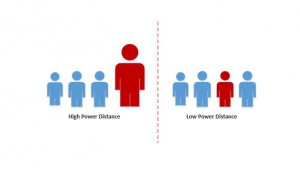The word “negotiation” makes us think about business field such as negotiating prize, or signing contracts, creating partnership. In fact, those do not include all of the cases, negotiation surrounds us anywhere, anytime: when you discuss house responsibilities with your partners, convince your kids not to use computer so much, interactions with your co-workers, call for internet service, and even negotiating with yourself, etc.
You can see negotiation plays a very important role in our daily life as well as in every business. In this article, we will talk about cross-culture negotiation, what could be the differences in negotiating with people from different countries? What could be the common misunderstanding in every cross-cultural negotiation?
What could be the differences in negotiating with people from different countries?
I am a Vietnamese student studying in Finland for three years. I have studied with people from different countries. In a project of Business-to-Business Negotiation, I worked with people from Germany, France, and Czech Republic, the goal of the project was to research Hofstede’s dimensions (Power Distance, Individualism, Masculinity, and Uncertainty Avoidance) of our countries. It was very interesting when we compared the score of every dimension. I will briefly explain it here.
In France contrary to Germany, power distance is quite high, the business structure is very hierarchical which has consequences on the position of the negotiating parties in the company. French people will not like to negotiate with someone below their power-level. In this way, German company has to be careful on the point in order to avoid misunderstandings. Czech Republic and Vietnam have high power distance also, especially Vietnam, Vietnamese people were influenced by Confucius conception deeply, they always behave that they have to listen and do what the more powerful people say.

Three countries Germany, France and Czech Republic have high score of individualism. People consider that his/her opponent has his/her own interest, like him/her; they look after themselves and their direct relatives and family members only, they tend to have loose relationships. By contrast, Vietnam is characterized by collectivistic society, people tend to feel safe when they belong to a group and their decision is always based on a group decision when they negotiate.

Germany is considered very masculine, compared to France and Vietnam, Czech Republic is somewhere in the middle. Managers from the Czech Republic and Germany are competitive, self-confident and the main priority for them is to be successful in their own business. On the other hand French, or Vietnamese managers strive for consensus and quality of life is one of the dominant values for them. The Czechs and Germans are motivated and want to achieve one’s goal, by contrast the French and Vietnamese work in order to live and personal life is more important for them than advance in career.

German, Czech, and French try to control the future to avoid the feeling of anxiety, so that in a business context, they want all necessary information before meeting or negotiation, they also consider many things before making a final decision. That’s why they take more time to decide and observe the risks. While Vietnam has quite low score of uncertainty avoidance, they try to maintain a more relaxed attitude, people do not seriously care about the future and they try to neutralize actions and relationships.

From the example of research above, you can see that there is a big difference in purpose, attitude, style in negotiation within different cultures. It can lead to the situation that the negotiation does not go the way we want.
So what could be the common misunderstanding in every cross-cultural negotiation?
There are two paradox conceptions of cross cultural negotiation, that people tend to underestimate or overestimate the cross cultural negotiation at the same time.
For example: how to negotiate with Chinese people? There are so many cultures among Chinese people: they could be from countryside or big cities, they could study abroad or live in China for their whole life, they could be young or old. People in this situation underestimate the role of culture because they just look at the nationality of the individual. There are still so many aspects impacting the way people behave such as educational cultures, gender … So that we need to consider all of the aspects which help us know how people think and communicate. Therefore, we are able to negotiate and persuade the other person better.
Another example for underestimating cross cultural negotiation is when we negotiate with a person having the similar background. We always make a certain assumption about that person when it might not be correct. As a consequence, we underestimate the risk of negotiation.
On the other hand, let’s take an example of a company in Hong Kong where people have different styles and different approach to negotiate. Western people are more direct, while Asians usually go around the subject about 20 minutes before they get on to the key item. In this situation, people will overestimate the cultural issue, they just blame the cultural differences if something goes wrong.
It is undeniable that different nations were influenced by different rituals which impacts significantly the way they communicate and negotiate. It is clear that ritual helps us to know how to build relationships in working place, or how to coordinate with other people. But there are still different aspects about the person who we negotiate with such as that person is extrovert or introvert, from different regions and different areas … So that the solution in this case is to find someone who can help us know about national issue or have experience in dealing with bi-cultural issues. We do not change our styles but the way how we communicate with people.
And we, Foreigners.cz, are here to help and assist you in negotiating with local people in the Czech Republic, when it comes to relocation, immigration, health insurance, etc. With our help you will avoid any cultural misunderstanding, and you can also gradually adapt to new environment, understanding more about the ways of communicating with Czech people.
After all, every negotiation is a cross cultural exercise. When we negotiate, we always have to think about how people behave, how they think, how they speak differently … to find the right argument to “enter” their mind and help them to see the world as we see it. Then they will probably be able to see the situation the way we want them to see it and they will be more willing to accept our point of view.
In conclusion, to become a good negotiator, we need firstly to learn and understand how people are, then we could find the way to communicate with them. Secondly, we need to adapt and adjust to them, to make them feel comfortable, which helps the negotiation go to win-win situation.
